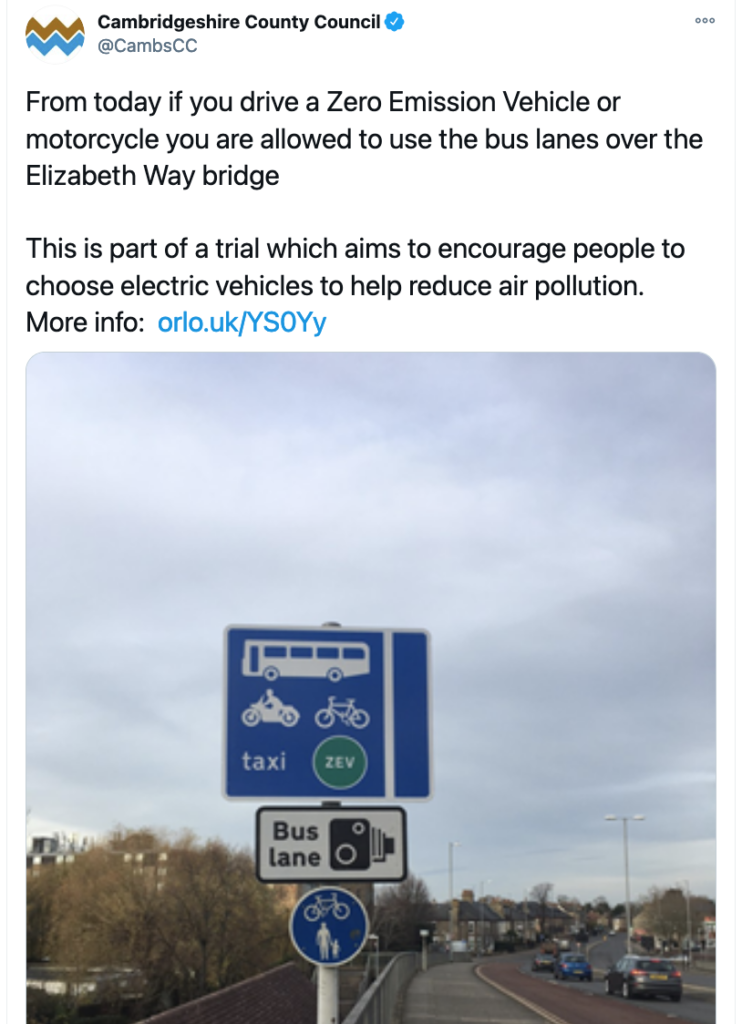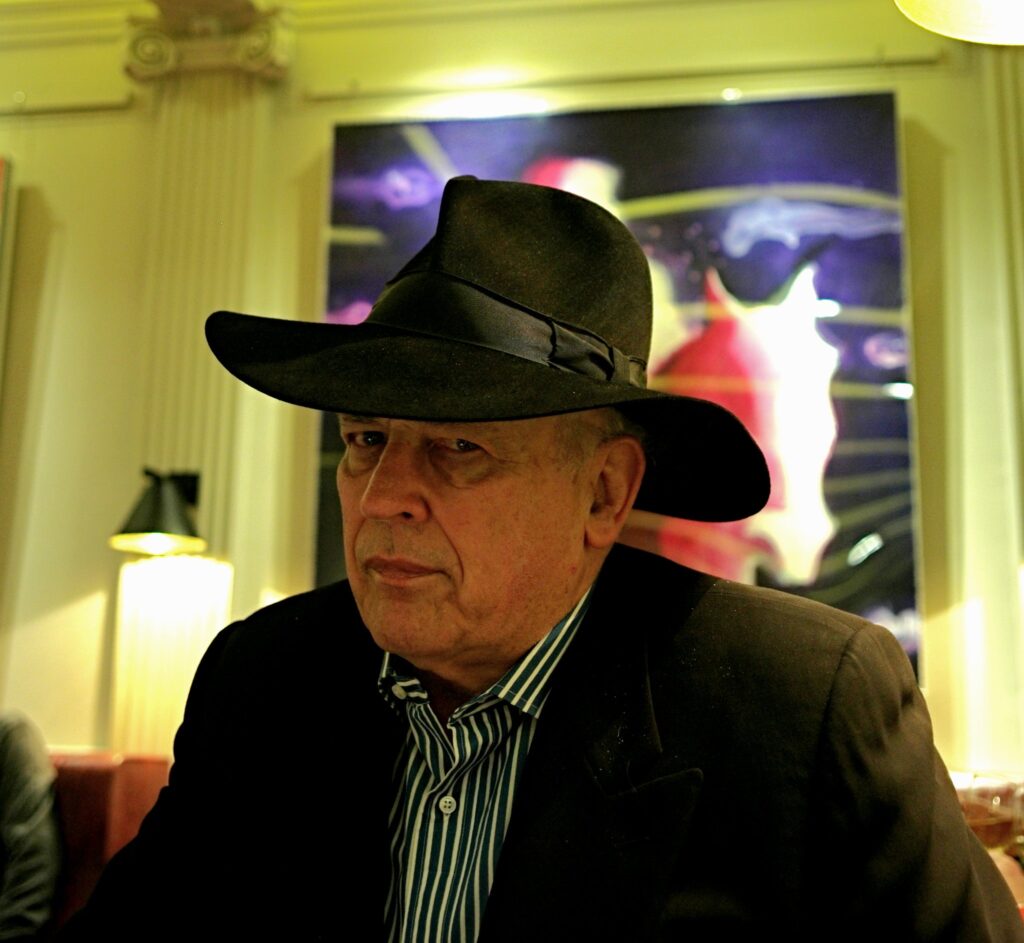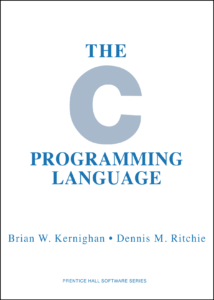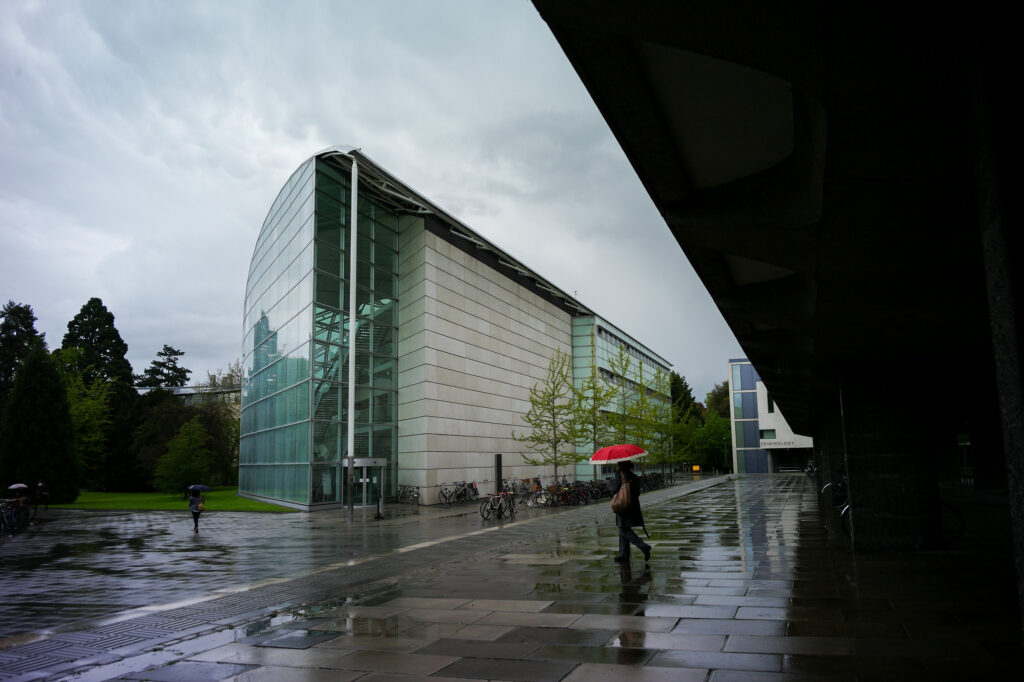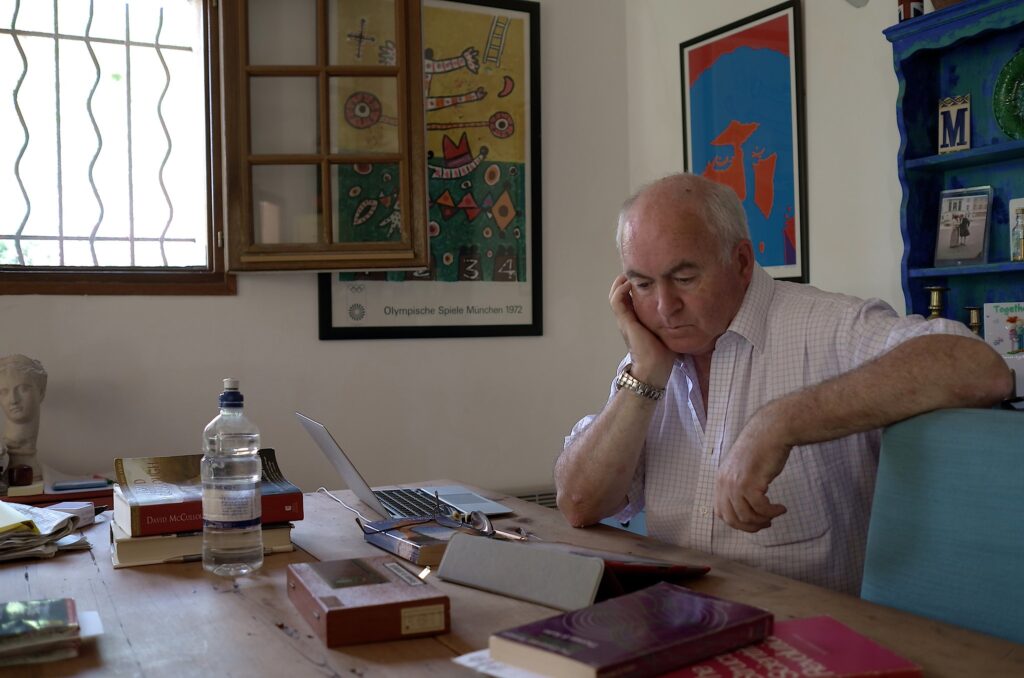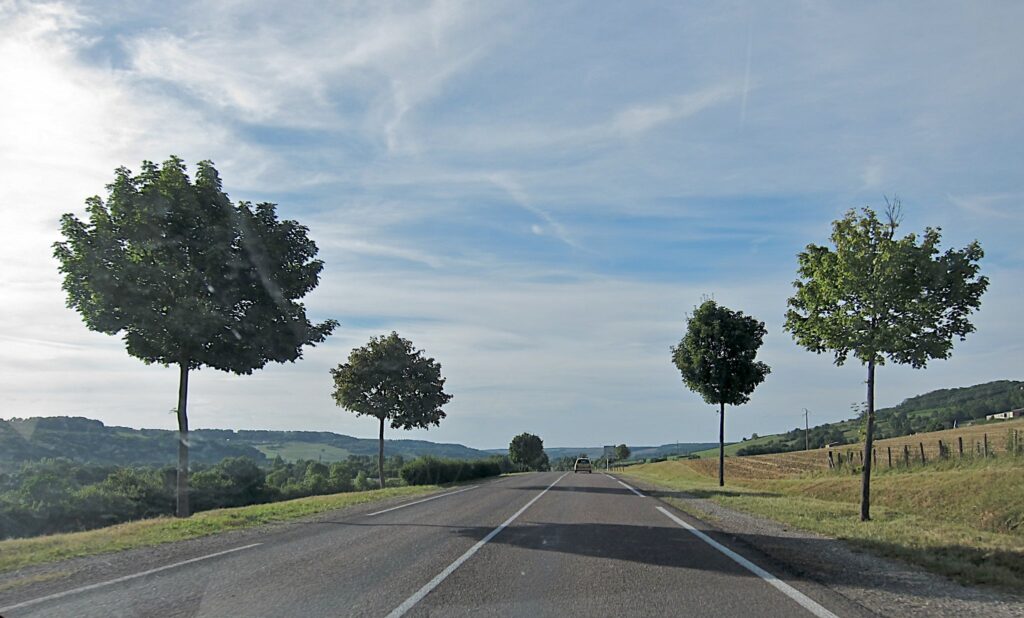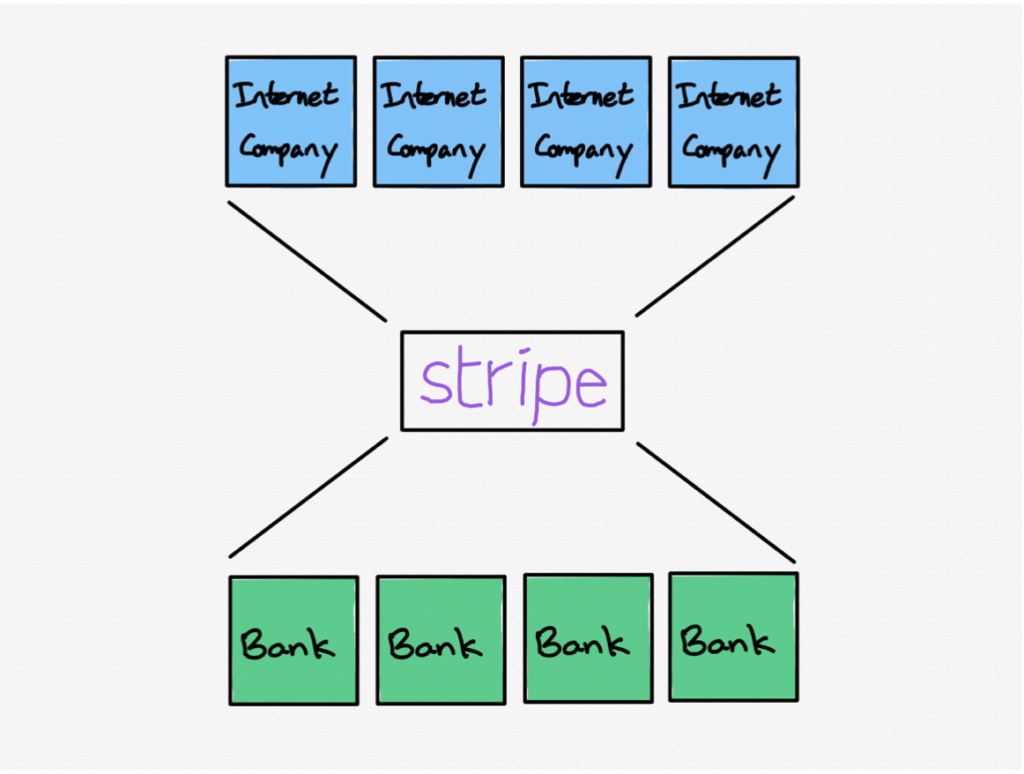Zero-emission vehicles this way
Well, it’s a start for us electricheads.
Quote of the Day
“Irish Americans are about as Irish as African Americans are Africans.”
- Bob Geldof
I couldn’t possibly comment.
Musical alternative to the morning’s radio news
Notturno in F Major, MH 185: III. Adagio
Long Read of the Day
China’s Radical New Vision Of Globalization
James Crabtree’s essay in Noema magazine.
Many experts have noted a changing Western consensus on China, as leaders in Washington abandoned the idea that economic modernization would inevitably lead to political liberalization in Beijing. But there has been a comparable shift in China’s internal conversation on the West too. Beginning with semiconductors but potentially expanding to all manner of other areas, China now expects it will have to develop technologically on its own. Xi’s new theory now sits at the heart of the country’s 14th five-year plan, which covers development from 2021 to 2025, and was unveiled in draft form in October. The result will accelerate China’s decoupling from the West, while also increasing the importance of trading links forged with other parts of the world — for instance, via Xi’s signature Belt and Road Initiative. Put more bluntly, while the world was distracted by the drama of the U.S. presidential election, Xi quietly unveiled an economic strategy fit for a new Cold War. Both for China and for globalization itself, the results are likely to be profound.
Note the Cold War reference.
Tech lobbyists ramping up in Brussels
Today in Brussels, alongside its Digital Markets Act designed to tackle unfair competition, the EU published its draft of a Digital Services Act that will force tech companies to take more responsibility for illegal behaviour on their platforms. According to the Financial Times, a draft of the new Digital Markets Act warns that tech companies which break competition rules will face fines of up to 10 per cent of their global revenues — and that the EU would move to break up any technology company that is fined three times within five years. Margrethe Vestager, the commissioner in charge of competition and digital policy, said the EU would not hesitate to “impose structural remedies, divestitures, that sort of thing”.
All of which helps to explain why, according to a NYT report,
As the European Union has become the global leader in tech regulation, these companies have increasingly focused on Brussels in hopes of choking off even stiffer rules before they spread. American lawmakers and regulators have already become much more aggressive. Last week, federal and state officials accused Facebook of illegally crushing competition. In October, the Justice Department accused Google of illegally protecting its monopoly over search.
In Europe, the companies are spending more than ever, hiring former government officials, well-connected law firms and consulting firms. They funded dozens of think tanks and trade associations, endowed academic positions at top universities across the continent and helped publish industry-friendly research by other firms.
In the first half of 2020, Google, Facebook, Amazon, Apple and Microsoft declared spending a combined 19 million euros, or about $23 million, equal to what they had declared for all of 2019 and up from €6.8 million in 2014, according to Transparency International, a group that monitors E.U. lobbying. The spending is helping to deliver access; the companies and their allies reported hundreds of meetings with officials at the European Commission and the European Parliament.
All very predictable. To date, though, the American approach seems to have cut little ice with the Commission. Long may that be the case.
Trump Strutted Like a Player, but also got played
Lovely Bloomberg column by Timothy O’Brien.
It took me a while to twig that Trump was actually a useful idiot for Mitch McConnell, who was at least as unscrupulous as the President but also effective at organising what he wanted to achieve. Here’s the key passage from O’Brien’s piece:
“At the risk of tooting my own horn, look at the majority leaders since L.B.J. and find another one who was able to do something as consequential as this,” McConnell, a history buff, told the New York Times after he rammed Justice Amy Coney Barrett onto the Supreme Court in October.
McConnell regards his conservative reshaping of the federal judiciary as his signature accomplishment, and his legacy goes well beyond the Supreme Court. He has pressed the Senate to confirm at least 229 federal court appointments during Trump’s presidency, and, for the first time in 40 years, hasn’t left a left a single vacancy on district and circuit courts — even if that has meant repopulating the judiciary with young, white men bearing threadbare resumes.
Trump didn’t have a sophisticated, informed view of the judiciary before becoming president. But he let McConnell transform such traditionally liberal venues as the Ninth Circuit Court of Appeals because the senator sustained him in other ways. McConnell ran interference when Trump was impeached. He helped court Trump’s incendiary political base. He kept to the shadows when Trump attacked the Black Lives Matter movement. He remained silent when Trump savaged the integrity of the presidential election.
McConnell, according to those close to him, held Trump in low regard but protected him anyway to feed his own political ambitions, further fuel his fundraising apparatus and go about dismantling the federal government. McConnell’s fealty and machinations came home to roost this year when Trump failed to effectively respond to the Covid-19 pandemic and the Senate was left so broken it appears unable to pass a second coronavirus relief package even though it has bipartisan support.
It’s not clear yet whether McConnell, content to wield power for power’s sake alone, will pay any penalties for cuddling with Trump. But there’s no question that he has spun the president like a top the last several years whenever one of his own goals was in play.
The historians among you will no doubt point out that ‘useful idiot’ was a coinage of Lenin’s, not to describe subordinates whom he could suborn but the Western intellectuals who were taken in by Soviet propaganda and their show-tours of the Communist Utopia in its early days. But it’s still a useful concept. It currently applies, for example, to the eminent members of the Facebook ‘oversight ‘Board, with Mark Zuckerberg playing Lenin.
Why Johnson might prefer no deal
Sobering assessment from Jonty Bloom.
The FT has by far the best British coverage of Brexit, with Irish media giving it a run for its money. Today there is another excellent article by Gideon Rachman on how finally the UK is realising that in negotiations between a market of 450 million and one of 65 million, it is the weaker party.
I am sure he is right but that doesn’t necessarily mean the UK will sign a deal, even though it is obviously in its interests to do so. That is because the deal on the table is actually quite a bad one, so there will be damage to the UK anyway. A politician might therefore ask himself first, who will benefit and who will be blamed?
The Brexit ultras will see any deal as betrayal and treason, if one French fishing boat is allowed to fish in UK waters or if one regulation can’t be cut because of EU objections, they will scream blue murder. When the deal doesn’t lead to the sunlit uplands (and it won’t) they will come for the person who signed it and having seen off the two previous Conservative Prime Ministers, I wouldn’t bet against them.
With no deal, any failures are all the EU’s fault and/or a price worth paying to be free. It might make for a simpler and longer political life.
The key unknown here is whether the Europhobic wing of the Tory party is as powerful as Jonty assumes.
This blog is also available as a daily email. If you think this might suit you better, why not subscribe? One email a day, delivered to your inbox at 7am UK time. It’s free, and there’s a one-click unsubscribe if you decide that your inbox is full enough already!

